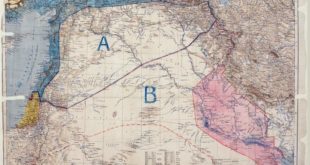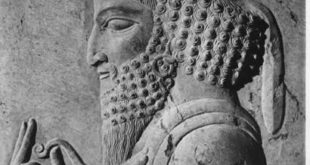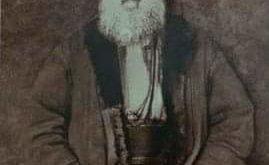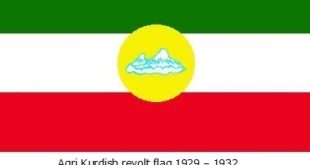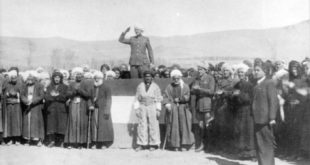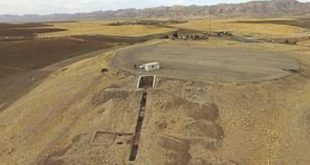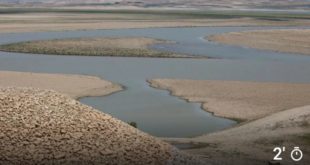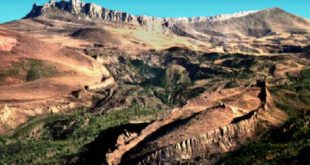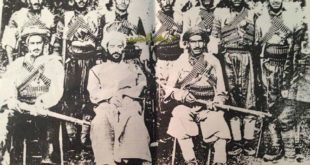Sykes-Picot Agreement 1916 WRITTEN BY: The Editors of Encyclopaedia Britannica Sykes-Picot Agreement, also called Asia Minor Agreement, (May 1916), secret convention made during World War I between Great Britain and France, with the assent of imperial Russia, for the dismemberment of the Ottoman Empire. The agreement led to the division of Turkish-held Syria, Iraq, Lebanon, and Palestine into various French- and British-administered areas. …
Read More »History of the Medes (Median) empire
The Medes were an people of Aryan origin who inhabited the western and north-western portion of present-day Iran. By the 6th century BC (prior to the Persian invasion) the Medes were able to establish an empire that stretched from Aran (the modern-day Republic of Azerbaijan) to Central Asia and Afghanistan. Today’s population …
Read More »The Emergence of Kurdish Nationalism and the Sheikh Said Rebellion, 1880-1925
Saikh Saeed who headed the Kurdsih effort to free itself from the Turkish rule in 1925, was the symbol of Kurdish reistance to the the foreign yoke. No rebellion frightened the ” godless” repubic of Turkey more than the Sheykh’s glorious uprising in 1925. His last words before his great …
Read More »Republics of Ararat and Ihsan Nuri Pasha
The Republics of Ararat was declared itself Kurdish state. It had been established in the present North (Turkish occupy) Kurdistan, and her powers basis was found of in the Agri province. The name of the Kurdish Republic had to thank one at the mountain of Ararat, this symbol for the …
Read More »Mahabad – the first independent Kurdish republic
The first independent Kurdish republic was in Iran. The ‘State of Republic of Kurdistan’ was founded in Mahabad in January 1946 and, although it survived for less than a year, it greatly inspired Kurdish nationalists everywhere. Abdication of Reza Shah The backdrop to this heroic chapter was the Anglo-Soviet invasion …
Read More »Lost city mystery solved as archaeologists decipher ancient clay tablets
The discovery of clay tablets in Iraqi Kurdistan has helped archaeologists unlock the mystery of an ancient lost city. The 92 clay tablets were unearthed last summer by archaeologists from Germany’s University of Tübingen during an excavation in the village of Bassetki. Stored in a pottery vessel and wrapped with …
Read More »The Skeletons of Shanidar Cave
A rare cache of hominid fossils from the Kurdistan area of northern Iraq offers a window on Neanderthal culture 1- in 1856, laborers working in a limestone quarry in the Neander Valley near Düsseldorf, Germany, dug up some unusual-looking bones. Subsequent study revealed that they belonged to a previously unknown …
Read More »Iraq’s Drought Exposed a 3,400-Year-Old Palace From the Mittani Empire
A team of German and Kurdish archaeologists have discovered a 3,400-year-old palace that belonged to the mysterious Mittani Empire, the University of Tübingen announced on Thursday. The discovery was only made possible by a drought that significantly reduced water levels in the Mosul Dam reservoir. “The find is one of the …
Read More »ANCIENT MYTHOLOGY AND KURDS. ARARAT OR JUDY?
Latif Mammad The Kurds, as the ancient inhabitants of Mesopotamia, are directly related to the spiritual heritage that had been accumulating for thousands of years, enriched and subsequently flowed into the spiritual treasury of humanity. The Kurdish people,during a long human evolution, as a genetic guide and a living book, …
Read More »Sheikh Abdulsalam Barzani and Kurdistan Independence
The glimpse of information from Russian, Ottoman Turkish, and British government sources from early 20th century give us a different look and appreciation the role of Sheikh Abdulsalam Barzani in Kurdistan liberation movements’ history in multiple aspects. The available sources indicate he had a great role across Kurdistan in early 1900s. …
Read More » History of Kurdistan
History of Kurdistan
